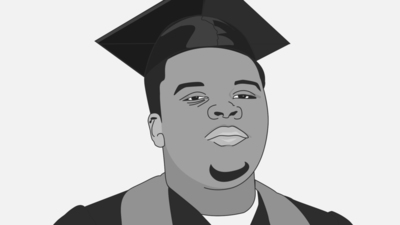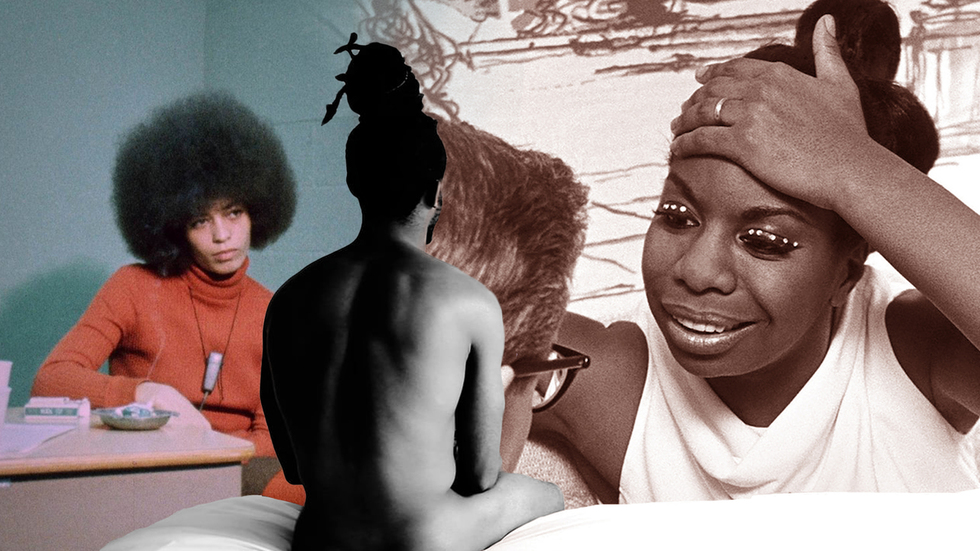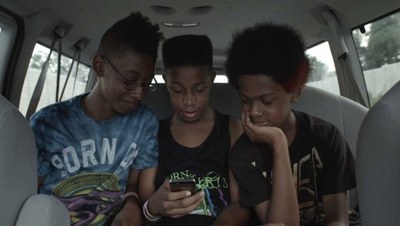
BY ANTWAUN SARGENT |
The BLACK LIVES MATTER Film Syllabus
Here are 10 films that explore the meaning of black life in America, films that are a part of a countless list of movies that contextualize the history of the movement to recognize the value of Black life to America

There are moments in black cinema that captures the complexities of black life. Scenes that provide glimpses of a fuller more complicated portrayals of characters, people and the social conditions that have incited the growing #BlackLivesMatter movement.
One such scene occurs in the new Liz Garbus’s award-winning documentary, What Happened, Miss Simone? A reporter asks Nina Simone at the end of the Civil Rights Movement in 1968, “What does Freedom mean to you?” It’s a moment in the film where the revolutionary blues and jazz singer is temporarily at a loss for words. Simone’s pause allows for the consideration of the fact that in that year Martin Luther King Jr., lost his life prematurely that is equal in the black imagination to way in which Emmett Till was murdered in Mississippi in 1955 or Trayvon Martin in 2012. In the time on screen that the singer considers freedom, we are forced to make sense of, Eugene Williams crossing the imaginary color line in Chicago’s Lake Michigan in 1919 and is drowned. Or the recent events in Charleston, South Carolina, where the Confederate flag flew above the State Capitol Building, 150 year after the end of Civil War, until that symbol was contested by the massacre of nine black men, women, and children—in their sanctuary—at Emmanuel African Methodist Episcopal Church.
In the aftermath of the growing number of black lives being lost the #BlackLivesMatter movement has been met with calls that #AllLivesMatter. Ultimately, Simone turns the question on the white reporter perhaps because she didn’t know freedom. He refuses to answer, as any good reporter would do, and she says in an almost hushed tone, “It’s just a feeling.”
Here are ten films that explore the meaning of black life in America—Films that are apart of a countless list of movies that contextualize the history of the movement to recognize the value of Black life to America:

The award-winning documentary explores how Nina Simone used her life to fuel her fight for freedom and equality. The film sources old music recordings, interviews with Simone’s friends and family, and footage of Simone herself, provide a glimpse into the civil rights struggle that has defined contemporary black life.

The Black Power Mixtape 1967-1975
The film explores the rise and fall of the Black Power Movement in America. It provides context to some of the issues that were not addressed by the Civil Rights Movement and how those problems have lingered in communities across America.

#Blackmendream
Artist Shikieth asks young black men a series of questions that ultimately reveals their dreams and fears. This social practice art film allows black men a space for emotional expression. The most haunting aspect of the film is that these young black men are turned away from the camera while speaking which situates their responses among the nameless black boys and men who are never have their dreams validated. Artist Hank Willis Thomas’ Question Bridge: Black Male short film series also explores similar questions.

Rosewood
Based on the 1923 Rosewood massacre in Florida, where a white mob burned to the ground an entire black town, the film points to the historical violence that has plagued the black experience. Directed by John Singleton and starring Ving Rhames, Don Cheadle, and Jon Voight, it shows how the calls for valuing black life are a multi-generational articulation of anger and fear.

Set It Off
The film explores the aftermath of what happen in communities when innocent black life is taken. The loss of life in the film shows that in communities that deal with the premature death of people they love can result in misplaced self-worth. In one scene, the brother of Lida ‘Stoney’ Newsom, played by Jada Pinkett Smith, is wrongly gun downed by the police after he is mistaken for someone else. The documentary The Interrupters also explores how crime in Chicago has led communities to commit more crime in an effort to gain worth.

He Got Game
A story about how black aspirations are often confined to the communities in which they live. In the sports film, Jesus Shuttlesworth played by Ray Allen, struggles between going to college at his father’s insistence and going straight to the NBA to lift himself and his family out of poverty. The romantic drama Love & Basketball also explores similar themes that are often at play for black athletes.

Eyes on the Prize: America’s Civil Rights Movement 1954-1985
The exhaustive documentary series explores almost every aspect of the Civil Rights Movement. The series uses first hand accounts to reconstruct the period that has shaped black life for the last half century. It explains what the victories were and how the consequences of the failures are visible today. The Stuart Hall Project also tracks the big moments of the twentieth century as they relate culturally to the lived American experience.

Cornbread, Milkman, Earl, and Me
The film focuses on the friendship of three young black boys growing up in the inner city. During one scene in the film, Cornbread played by Keith Wilkes, is running home after hanging out with his friends and he is shot and killed by police officers because he fit the descriptions of the suspect police officers were pursuing. The film raises questions about policing in America which help incite the #BlackLivesMatter movement. The 1991 film Boyz N the Hood, the 1995 comedy Friday, and the recently released coming of age film Dope, staring Zoë Kravitz, A$AP Rocky, and Shameik Moore, also detail friendship. Also worth noting here is A Conversation with My Black Son, a short documentary where parents get honest about the difficult process of talking to their black children about being targets of racial profiling.

#BlackLivesMatter is singular in the way in which it also has called for the valuing and visibility of LGBTQ African-Americans. Pier Kids: The Life shows the complexities of living in New York City as poor LGBTQ black youth. The celebrated documentaries Paris is Burning and Black Womyn and the feature length film Brother to Brother also explores the unique challenges and community that forms at the intersection of being both black and gay.

Porgy and Bess
Adapted from the 1935 Gershwin brother’s opera of the same name, the musical traces the love story of Porgy and Bess. It is a complicated love story that explores the limitations of black love in the American south. Poetic Justice, starring Janet Jackson and Tupac Shakur, also explores notions of black love. Set in 1990s South Central, Los Angeles, Justice, the poet, played by Jackson falls for Lucky, a young mail clerk, who is played by Shakur. The film follows the couple as they negotiate their love. Eve’s Bayou is another film, like Porgy and Bess and Poetic Justice, that details aspects of black love.

